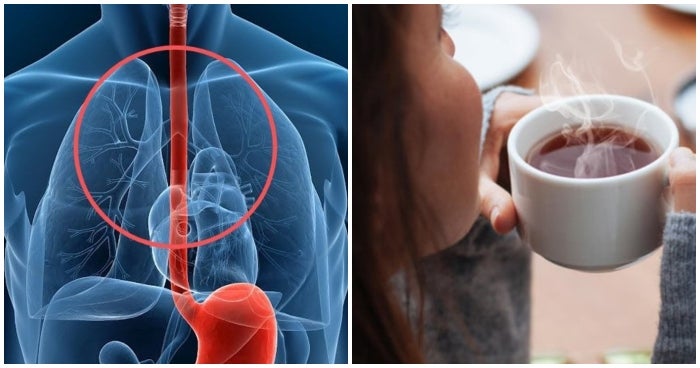A cup of tea can do so much for one’s mood, whether it’s as a refreshing start to the day or a soothing balm at the end of a long day. However, the next time you brew your daily cuppa or any other drink for that matter, you might want to give it some time to cool down, or it might increase your risk of cancer!
Malay Mail reports that the International Journal of Cancer recently published a study by Tehran University of Medical Sciences, which contained solid proof that drinking hot tea could increase one’s risk of oesophageal cancer. In the study that ran from 2004 to 2017 and surveyed 50,045 individuals between 40 and 75 years old, 317 of them wound up being diagnosed with oesophageal cancer.

Source: heartburn cancer uk
From this, researchers deduced that drinking 700ml of tea daily that was equal to or higher than 60°C could lead to as much as a 90% increase of risk for oesophageal cancer. This is even more significant in relation to the fact that the World Health Organisation considers drinking beverages equal to or above 65°C to be dangerous. Looks like you can never be too careful!
Now, what is the exact correlation between hot drinks and this particular type of cancer? According to USA Today, the study’s lead author Farhad Islami says that chronic thermal injury from being exposed to searing temperature could cause inflammation that can lead to cancer, or affect the oesophageal lining so deeply that it makes it easier for carcinogens ingested via food or drink to penetrate it. Simply put, this means that the high temperature can damage your oesophagus!

Source: new york daily news
However, Islami also noted that it’s the temperature rather than the beverage that poses a threat, and that more research needs to be done before we can truly understand why hot beverages are such a cancer trigger.
The data echoes a China-based study that was released last year (2018), that concluded a lifestyle steeped heavily in alcohol, tobacco and frequent drinking of hot beverages could increase the risk of the same type of cancer. However, since the newest study does not have alcohol and tobacco in the equation, it’s become far more concerning for most of us.
What say you to this study? Will it make you think twice about sipping that super hot Oolong the next time? Let us know in the comments!
Also read: Study Shows Those as Young as 30 & Below Can Suffer Strokes, Here Are The Symptoms






































